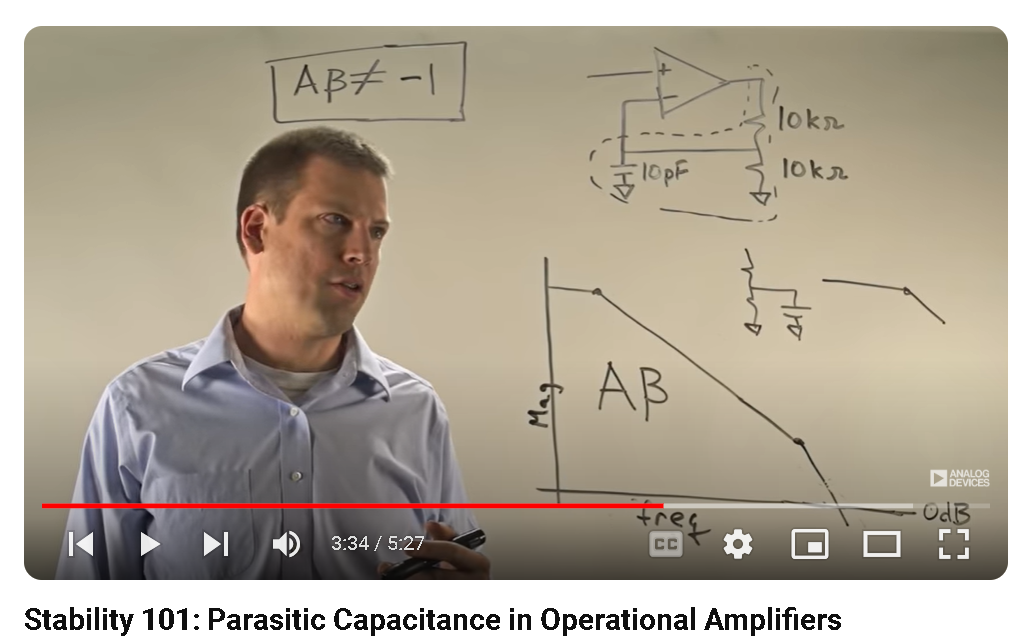At 3:34 of the video he says high-speed op-amps suffer from the parasitic capacitance effect.
Why do we have parasitic capacitance on the minus leg, and not on the load?
What is special in high-speed op-amps that can cause that?
I'll be happy to have some op-amp model example to see this effect.

